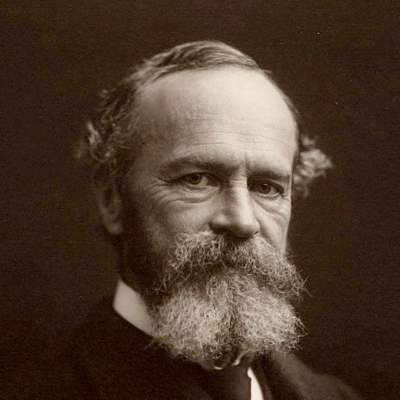
Birthdate: 11th January 1842
Nationality: American
Bio:
William James was born on January 11, 1842 in New York City. He came from a wealthy family and was the son of Henry James Sr. and the brother of renowned novelist Henry James. James received his early education from private tutors and schools in America and Europe. He studied painting and architecture for a time before enrolling in Lawrence Scientific School at Harvard University in 1861 to study medicine.
While at Harvard, James began studying physiology and psychology, which sparked his interest in philosophy and psychology. He traveled to Germany in 1865-1866 to study physiology and psychology at the universities in Berlin, Heidelberg, and Göttingen. During this time, James experienced a spiritual crisis that led him to study philosophy more deeply. He returned to the U.S. and taught anatomy and physiology at Harvard from 1873-1907. In those years, he published influential works that helped establish psychology as an academic discipline in the United States.
Some of James’ most notable works included The Principles of Psychology in 1890, which helped establish him as a leading American psychologist and philosopher. In this work, he examined consciousness and the stream of thought. He introduced concepts like the “stream of thought,” “consciousness,” and “selective attention.” He also wrote essays on pragmatism and radical empiricism and published a two-volume work on pragmatic philosophy. His work emphasized practical consequences over philosophical absolutes and the importance of individual experience over abstract principles.
Throughout his life, James continued lecturing and writing on topics of psychology, philosophy and religion. He published one of his most famous works, The Varieties of Religious Experience, in 1902. In this work, he studied experiential aspects of religion and suggested that healthy-mindedness and religiosity need not be incompatible with a scientific outlook. James suffered from heart disease late in life and died on August 26, 1910 at his home in Chocorua, New Hampshire at the age of 68. He left a significant legacy as a pioneering psychologist, philosopher and author who helped introduce pragmatism to American philosophy.


